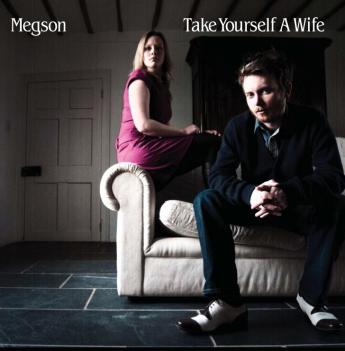Search
CD Review: Rychard Carrington reviews Take Yourself A Wife - Megson

The cover of this album doesn't give its folkie contents away, but the first words on the inner sleeve make all abundantly clear:
Take Yourself A Wife, released on EDJ Records, is a collection of songs, written by songwriters from the north-east of England, from the eighteenth to the twentieth century.' So there you have it. (Actually, the songs are nearly all from the nineteenth century.) (And, by the way, Megson now live in Royston.) At the end of the little booklet is stated: ‘Megson are Debbie Hanna-Palmer, vocals, concertina; Stu Hanna, vocals, octave mandola, mandolin, guitar, bass, fiddles.' Sounds like they've just got married, which is nice. In the middle is a black and white photograph of a wedding party from about a hundred years ago. The rest of the booklet describes the story behind each song. And at the very end the songbooks in which they discovered the material are fully acknowledged. Sound stuff.
Megson perform the songs with a graceful passion, strong and sensitive throughout. The vocals bring out both the melodies and the feelings in the compositions powerfully (and there are some nice harmonies). The instrumentation unostentatiously enhances the ambience and the musical pleasure (the guitar-like instruments are to the fore most of the time).
The titles are indicative: The Pitman's Happy Times, Fourpence A Day, The Oakey Strike Convictions, Jane Jamieson's Ghost, The New Fish Market, Sandgate Lassie's Lament. Each song movingly portrays aspects of working people's lives of the day. The strength and sincerity of both the songwriting and Megson's delivery ensure that humane empathy and sheer respect transcend any sentimental attraction to the past. These lives were difficult, frequently tragic, and joys felt were not simple but hard-earned.
Megson have been described as ‘nu-folk' but this all sounds refreshingly like old folk to me. What comes across is a deep appreciation of these old songs, the people who wrote them and the people described in them. And a thorough belief in acoustic folk music as a medium for powerful authentic emotional communication. Of course they would receive much more publicity if they played traditional numbers in death metal style, or did a cappella versions of Madonna hits, but no, this is folk for people who actually like real McCoy folk music. In a nutshell, it's very good.
Writer: Rychard Carrington